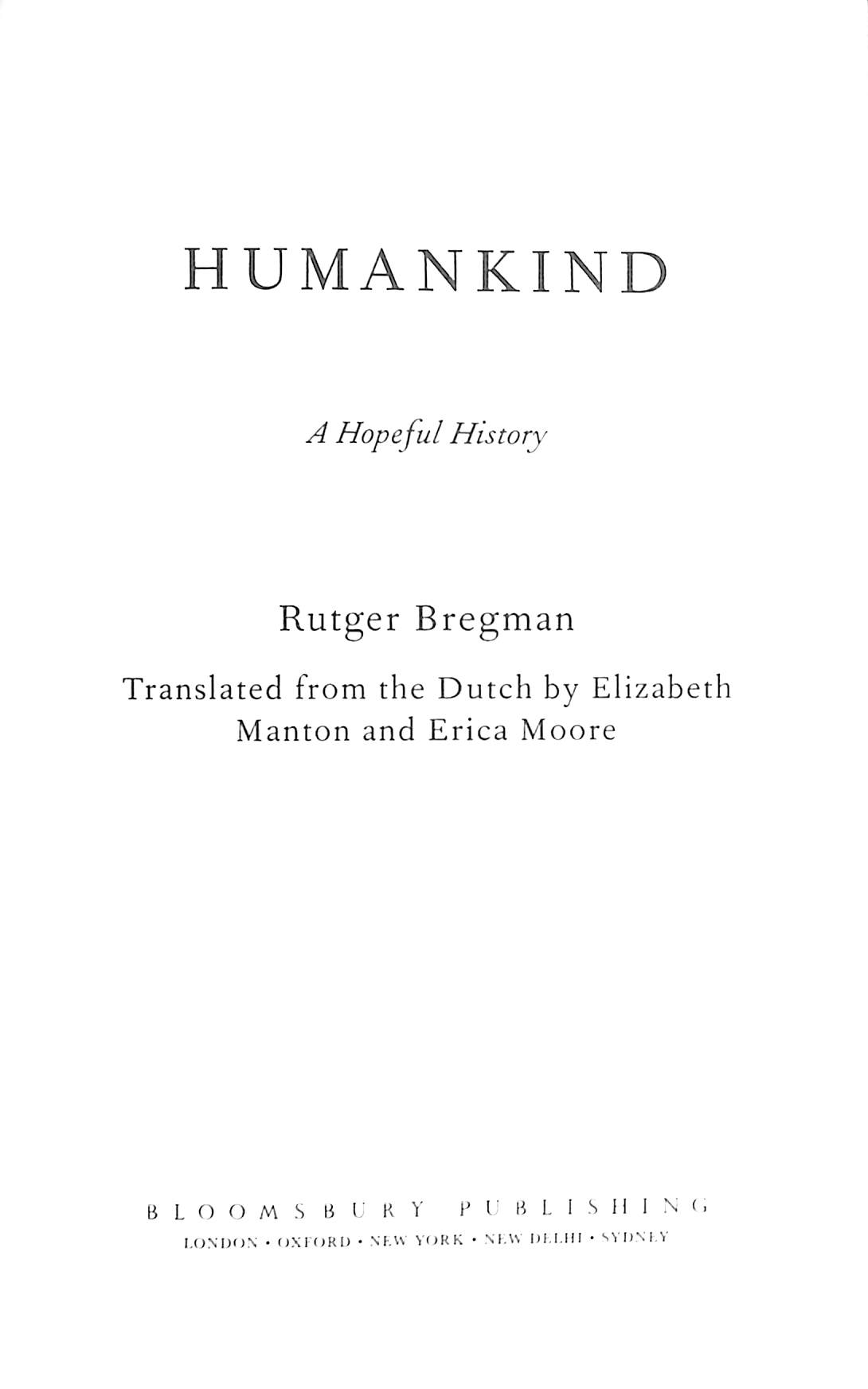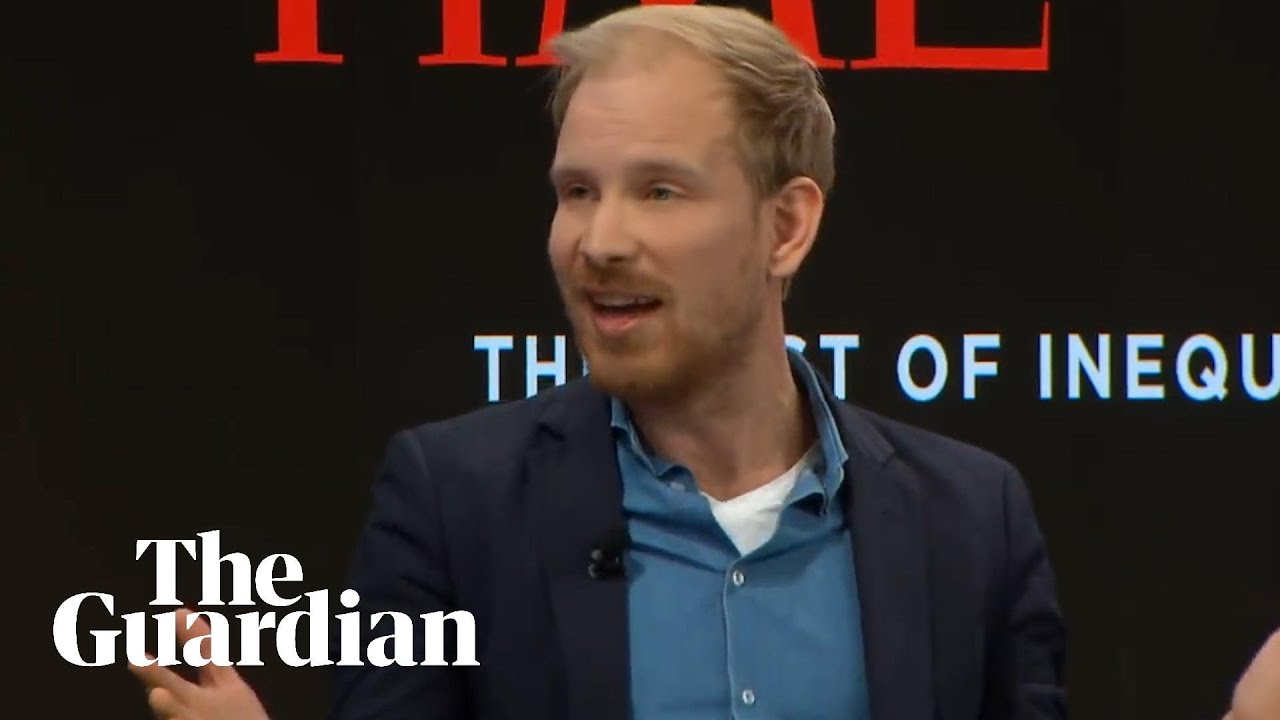

Meticulously sifting the evidence, Bregman finds that the most pessimistic views of human nature are not backed up by the facts. The main message: it is time for a new realism based on believing the fact that humans are good."- Jeroen Kraaijenbrink, Forbes
Rutger bregman humankind crack#
"As Bregman shows very convincingly in this book, we are not the selfish species we think we are and civilization is not a thin layer of veneer that will crack as soon as put to the test. Bregman offers a compelling case for reshaping institutions and policies along genuinely humane lines."- The New Yorker Bregman presents his findings in a chatty, engaging style that evokes Malcolm Gladwell."- Barbara Spindel, Christian Science Monitor Bregman is not naive he grounds his arguments in reassessments of historical events and in studies from the sciences and social sciences. " Humankind is an enjoyable and thought-provoking read, one whose bold argument has potentially far-reaching implications for how we run our governments, workplaces, schools, and correctional facilities. In vivid descriptions and stories, Rutger Bregman takes us back to the questionable experiments that fed this idea and offers us a more optimistic view of mankind.- Frans de Waal, New York Times bestselling author of Are We SmartEnough to Know How Smart Animals Are? and Mama's Last Hug: AnimalEmotions and What They Tell Us About Ourselves Humankind is an in-depth overview of what is wrong with the idea is that we humans are by nature bad and unreliable. "The Sapiens of 2020." - The Guardian " Humankind made me see humanity from a fresh perspective." -Yuval Noah Harari, author of the #1 bestseller Sapiens Longlisted for the 2021 Andrew Carnegie Medal for Excellence in Nonfiction One of the Washington Post's 50 Notable Nonfiction Works in 2020 But if we believe in the reality of humanity's kindness and altruism, it will form the foundation for achieving true change in society, a case that Bregman makes convincingly with his signature wit, refreshing frankness, and memorable storytelling.

When we think the worst of people, it brings out the worst in our politics and economics. Moreover, it has huge implications for how society functions.

From the real-life Lord of the Flies to the solidarity in the aftermath of the Blitz, the hidden flaws in the Stanford prison experiment to the true story of twin brothers on opposite sides who helped Mandela end apartheid, Bregman shows us that believing in human generosity and collaboration isn't merely optimistic-it's realistic. In fact this instinct has a firm evolutionary basis going back to the beginning of Homo sapiens. But what if it isn't true? International bestseller Rutger Bregman provides new perspective on the past 200,000 years of human history, setting out to prove that we are hardwired for kindness, geared toward cooperation rather than competition, and more inclined to trust rather than distrust one another. Human beings, we're taught, are by nature selfish and governed primarily by self-interest. From Machiavelli to Hobbes, Freud to Pinker, the roots of this belief have sunk deep into Western thought. It's a notion that drives newspaper headlines and guides the laws that shape our lives. If there is one belief that has united the left and the right, psychologists and philosophers, ancient thinkers and modern ones, it is the tacit assumption that humans are bad. Rutger Bregman provides new perspective on the past 200,000 years of human history, setting out to prove that we are hardwired for kindness, geared toward cooperation rather than competition, and more inclined to trust rather than distrust one another"-īook Synopsis AN INSTANT NEW YORK TIMES BESTSELLER The "lively" ( The New Yorker), "convincing" ( Forbes), and "riveting pick-me-up we all need right now" ( People) that proves humanity thrives in a crisis and that our innate kindness and cooperation have been the greatest factors in our long-term success as a species. From Machiavelli to Hobbes, Freud to Pinker, the roots of this belief have sunk deep into Western thought beings, we're taught, are by nature selfish and governed primarily by self-interest. About the Book "If there is one belief that has united the left and the right, psychologists and philosophers, ancient thinkers and modern ones, it is the tacit assumption that humans are bad.


 0 kommentar(er)
0 kommentar(er)
